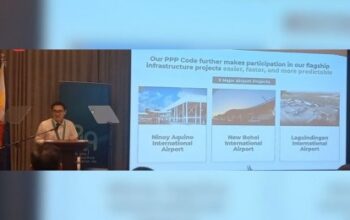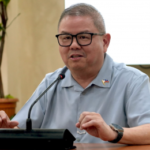Freelance workers in the country will soon be provided ample legal and contractual protection and ease of doing business, under the Freelance Workers Protection Act passed on second reading by the House of Representatives on Wednesday.
Authored by Albay 2nd District Rep. Joey Sarte Salceda who chairs the House Ways and Means Committee, the approved consolidated version of the measure (HB 6718) aims to promote the safety and well-being of freelance workers, specifically by mandating the provision of mandatory hazard pay and night shift differential pay.
The measure’s most important provisions include its requirement for a written contract between the employer and the freelance worker that shall state the terms and conditions of employment, the services to be provided by the worker, the details of compensations and benefits, the employment period, the grounds for breach of contract, and other conditions as may be directed by the Department of Labor and employment (DOLE).
Salceda said the measure aims to advance the rights and welfare of freelancers, ensure their humane working conditions and proper living wage, while protecting their interest in instances where their employers refuse to pay them for the services they rendered, or similar such cases. The measure was passed by the Lower House unanimously in the 18th Congress in March 2021, but failed to be enacted.
Salceda pointed out that the Labor Code presently, has no definition for freelancing and provides no formal contractual framework for Filipinos working under this category, who already number more than 1.5 million prior to the Covid-19 pandemic.
HB 6718 defines a freelance worker as any person working for a firm, whether incorporated under the Securities and Exchange Commission or registered as a sole proprietorship under the Department of Trade and Industry, or as self-employed registered with the Bureau of Internal Revenue, and hired or retained to provide services in exchange for compensation, as an independent contractor to do work according to one’s own methods and without being subjected to the control of the hiring party,” except for the results of his work.
“If this law is enacted, freelancers will have contractual protections and tax amnesty for their own sector to help them register legally,” the Albay lawmaker explained.
“The hiring party and the freelance worker shall each retain a signed copy of the contract, written in plain language and understood by both parties. It will itemize the services to be rendered; the details of compensation and other benefits; the period of employment; the grounds for breach of contract; the TIN; and any condition, term or clause the DOLE may direct,” he added.
Under HB 6718, freelancers who are required to be physically present in the workplace or those on field assignments shall be paid a night shift differential of not less than 10 percent of one’s regular compensation for each hour of work performed between 10 p.m. and 6 a.m., unless there is a more favorable fee stipulated in the contract.
Freelance workers deployed in dangerous areas such as strife torn or embattled locations, distressed or isolated stations, areas under state of calamities or emergencies, contagions, radiations and the likes will also be granted hazard pay equivalent to not less than 25 percent of the total payment stated in the contract.
The bill also provides a civil penalty of P50,000 to P500,000 for unlawful practices which include paying the compensation due to freelance worker later than 15 days after the date of payment of compensation stated in the written contract; or requiring as a condition of payment of compensation that a freelance worker accepts less than the specified contract price.
Image credits: Canva, try it for free.










